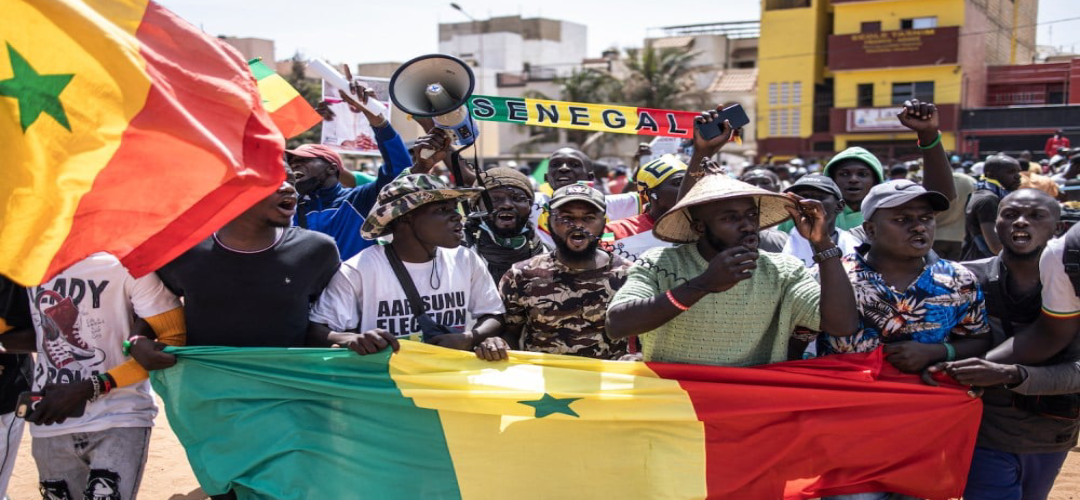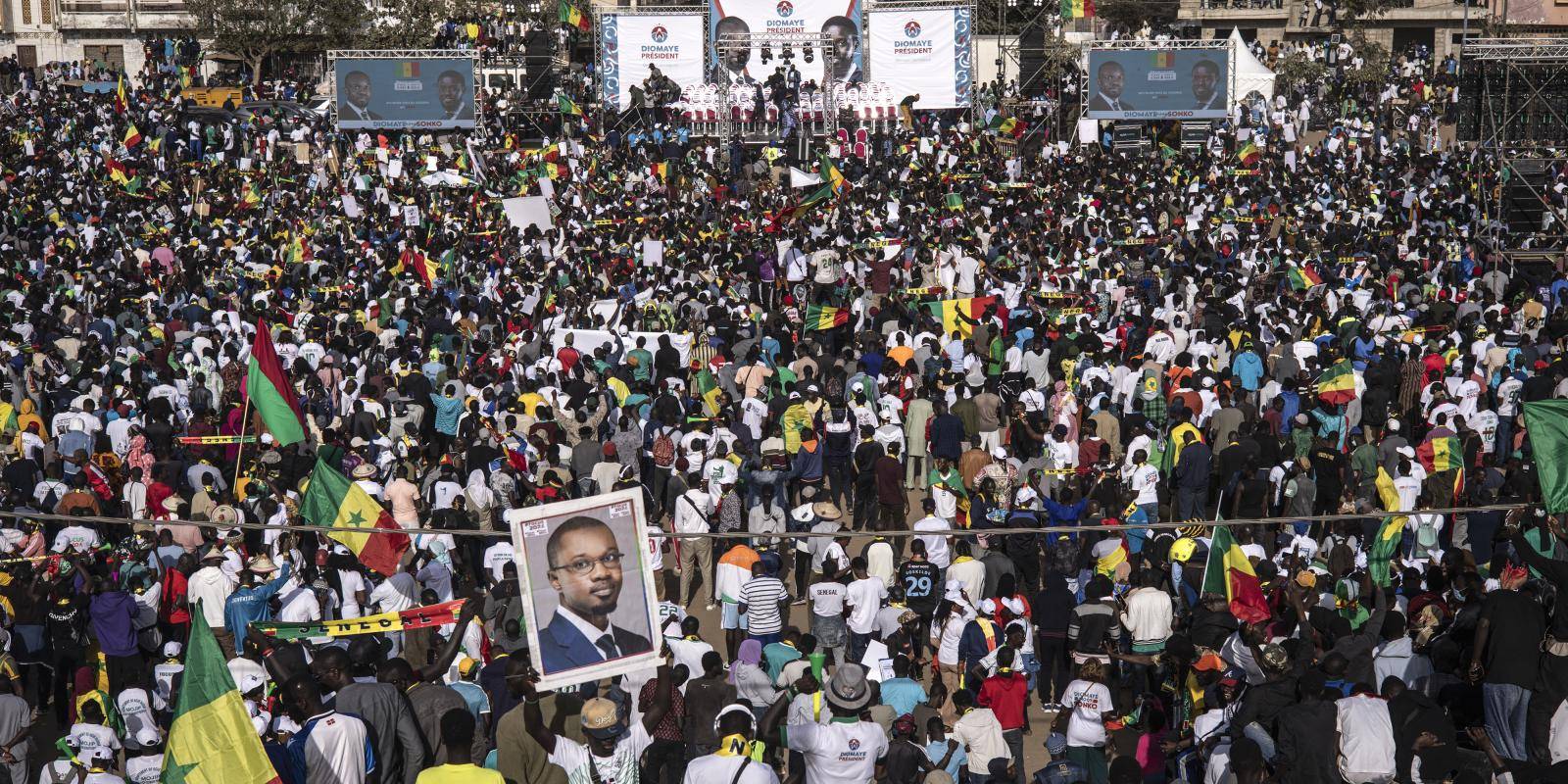A Green Shoot for Democracy
March 30, 2024 | Expert Insights

It is only the beginning of the election year in Africa, but the results of each election serve as a microcosm for understanding the intricate dynamics of power, governance, and the quest for democracy. This is vital for the future of democracy on the continent, which has a vibrant youth demographic eager for change against a backdrop of coups and authoritarianism.
As always, Senegal showed the way when its opposition presidential candidate, Bassirou Diomaye Faye, won 53.7 per cent of the votes against the ruling coalition candidate, Amadou Ba's 36.3 per cent. Senegal has a two-round voting system requiring the winning candidate to secure more than 50 per cent of the votes.
In a gesture not common to these parts, Mr Ba called Mr Faye and conceded defeat gracefully even before the official results had been announced, thus strengthening Senegal's democratic foundations immensely.
This is a remarkable achievement for any nation in a continent that stands at the top of the table for having the highest number of coups globally.
Background
2024, The Global Polls Year, has its calendar laid out in the African Continent, with 19 African National elections set to occur. Three countries were planned for the beginning of the year - Comoros, Mali and Senegal. With one election complete and another postponed, the two outcomes have posed a significant setback to democracy, displaying a weak start.
Comoros presents an interesting study; it has witnessed nine coup attempts, four of which were successful. The archipelago Comoros' election officials initially announced on 16 January that the incumbent President, Azali Assoimani, had been re-elected with 62 per cent of the votes and a 16 per cent turnout. However, the Supreme Court approved a set of results showing the candidate secured 57 per cent of the votes with a 56.44 per cent turnout. The former army officer came into power in 1999 through a coup operation, won three elections and has served as the chair of the AU for the past year. Comoros altered its constitution in June 2018 to remove a requirement that the presidency rotates among the three main islands every five years, allowing Assoumani to seek re-election. Assoumani’s authoritarianism has been studied to fit a pattern in African leadership of coming into power through extraconstitutional means and subsequently violating the legal constraints on their time in power. Assoumani’s extended term as well as the 2018 Constitution consolidating power under the executive by removing the three vice presidents of the respective islands from their offices, has come to reflect an erosion of democratic stability.
The next country in chronological line for the elections was Mali, which was initially decided to be held on 4 February 2024 but has been indefinitely postponed. Under the military junta of Colonel Assimi Goita, the democratic space has been confined significantly, especially in the spike in self-censorship. Domestic or international media journalists who openly express their discontentment with the junta are suspended or arrested. Malian junta reportedly has been able to control the information space with Russian state-sponsored disinformation campaigns to shut down criticism.
Senegal has distinguished itself from its West African neighbours by establishing a sustained and apolitical army, aligning with the cultures of military professionalism and public service. In the buildup to the elections, which were initially set to occur on 25 February 2024 but occurred on 24 March 2024, this distinctive characteristic has contributed to stability and public trust among the Senegalese. The usually peaceful population, however, was stirred up by the now former President Macky Sall, who wanted to extend his mandated constitutional limit into a fourth term. He also prosecuted Ousmane Sonko, the opposition candidate who ran alongside the newly elected President Bassirou Diomaye Faye, under defamation convictions. Sonko was imprisoned up until very recently, making him an ineligible candidate. However, the “Diomaye is Sonko” campaign prevailed, and the election turnout resulted in 71 per cent with no major incidents reported.

Analysis
Recent coup risings in West Africa, especially in the Sahel region (Niger, Burkina Faso, Mali, Chad and Sudan), have raised concerns about the decline in democracy. Senegal has only experienced one and an unsuccessful coup in 1967. However, conditions for coups have been linked to economically poorer countries, with greater terrorism campaigns or insurgencies and a lack of faith in their political leaders.
Senegal is bordered by politically vulnerable nations, which sparks concern about stability on its eastern front. Senegal also seeks support from Russia to help with the jihadist insurgency apparent all along the strip of neighbouring countries. Police crackdowns, rising living costs and Sall’s extended time in the government drove voters, especially the youth, towards the opposition. Despite the per capita economic growth being 3.4 per cent during Sall’s time, his ability to infringe upon constitutionally binding terms of his period in power alarmed the nation and the democracy on which it prides itself. In addition, Sall periodically blocks social media, and freedom of the press has not been a very popular opinion in itself. Senegal's freedom of the press between 2021 and 2023 dropped 55 places from the 49th to the 104th rank.
Faye has ridden the new wave of youths' aspirations against deeply embedded corruption and restoration of stability politically and economically—the population of around 880,000, over 60 per cent are under 25 years old. The unemployment rate is a staggering 20 per cent. As a producer of oil and gas, the newly elected president has promised to renegotiate these energy contracts to achieve fiscal autonomy, something which has won him favour across the political divide.
Assessment
- A peaceful democratic transition through the ballot box is becoming a rarity in Africa. It is for this purpose the peaceful elections in Senegal have been a win for democracy in the larger landscape of the continent, and every win counts.
- While Faye has won on his platform of promised stability, he will have his work cut out to prove to his voters that he can actually bring to fruition all that he promised in his campaign. The international community must pitch in to make his tenure successful and a model for other countries to emulate.
- The continued abuse of democratic processes in countries like Comoros and Mali should be roundly criticised and international pressure brought to bear to ensure that authoritarian regimes are forced to allow free and fair electoral processes in their countries.








Comments